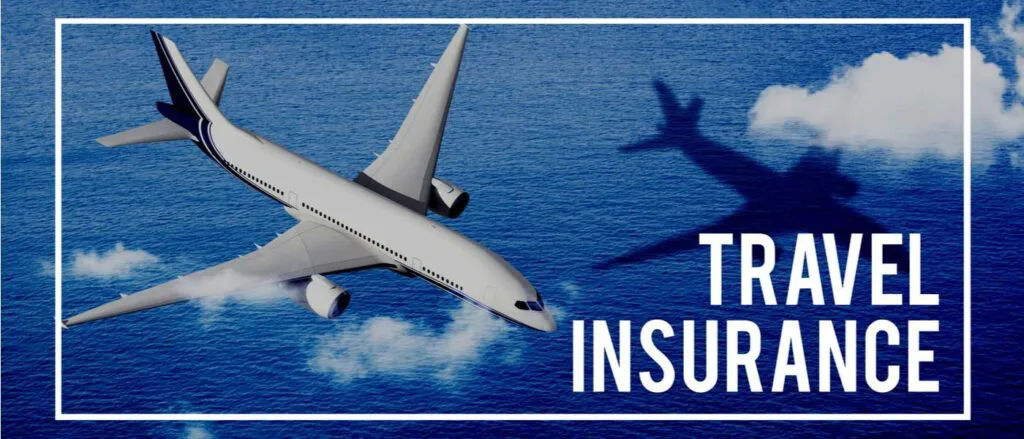Travel insurance is an often overlooked but essential aspect of planning both business and leisure trips. Whether you're traveling for work or a vacation, travel insurance can help protect you against unexpected events that could ruin your trip or lead to significant financial loss. In this article, we’ll explore the types of travel insurance, the coverage they provide, and how to choose the right plan for your travel needs.

Table of Contents:
- What is Travel Insurance and Why Do You Need It?
- Types of Travel Insurance Coverage
- Key Benefits of Travel Insurance
- How to Choose the Right Travel Insurance
- Common Travel Insurance Exclusions
- Travel Insurance for Business vs. Leisure Travel
- Travel Insurance for Medical Emergencies
- Frequently Asked Questions (FAQs)
- Conclusion
1. What is Travel Insurance and Why Do You Need It?
Travel insurance is a policy designed to cover the costs and losses associated with unexpected events that can occur while traveling. These events might include trip cancellations, medical emergencies, baggage loss, flight delays, or even natural disasters. Travel insurance provides a safety net by helping you recover costs and ensuring that you have access to necessary assistance during your trip.
Why You Need Travel Insurance:
- Trip Cancellations or Interruptions: Travel plans can be disrupted by unforeseen events such as illness, family emergencies, or natural disasters. Travel insurance can help you recoup non-refundable expenses.
- Medical Emergencies: Healthcare coverage abroad can be expensive, and many health insurance plans don’t cover international travel. Travel insurance can cover medical emergencies while you're away.
- Flight Delays or Cancellations: If your flight is delayed or canceled, travel insurance can help cover additional expenses like lodging, meals, and transportation.
- Baggage Loss or Theft: Travel insurance can reimburse you for lost, stolen, or damaged baggage, ensuring that you don’t face financial losses.
2. Types of Travel Insurance Coverage
Travel insurance plans can vary widely in terms of coverage, so it’s important to choose one that fits your travel needs. Here are the most common types of travel insurance:
a. Trip Cancellation and Interruption Insurance
This coverage reimburses you for prepaid, non-refundable expenses if your trip is canceled or interrupted due to unforeseen circumstances, such as illness, a natural disaster, or a family emergency.
b. Medical and Emergency Evacuation Coverage
Medical coverage protects you in the event of illness or injury while traveling, especially if you’re traveling internationally where your regular health insurance may not apply. Emergency evacuation coverage helps cover the cost of getting you to a medical facility if you're injured or become seriously ill.
c. Lost or Stolen Baggage Coverage
This policy covers the cost of lost, stolen, or damaged luggage and personal items while traveling. It ensures you don’t have to bear the financial burden of replacing important items like clothing, electronics, or medications.
d. Travel Delay Insurance
Travel delay insurance covers expenses incurred due to delays caused by factors beyond your control, such as weather or technical issues. It may cover meals, accommodations, and transportation while you wait for the next available flight.
e. Accidental Death and Dismemberment Coverage
This provides coverage in the unfortunate event of death or dismemberment caused by a travel accident. While it's rare, this type of insurance is important for individuals traveling to high-risk destinations or activities.
f. Flight Accident Insurance
This is a more specific form of accidental death and dismemberment insurance that covers injuries or fatalities sustained while traveling by plane.
3. Key Benefits of Travel Insurance
Travel insurance provides several key benefits that help reduce stress and financial loss during a trip:
a. Financial Protection
One of the biggest advantages of travel insurance is financial protection against unexpected expenses like cancellations, medical emergencies, or baggage loss. Without it, these events could be financially burdensome.
b. Peace of Mind
Knowing you’re covered in case of an emergency provides peace of mind during your travels. Whether it’s coverage for a medical emergency or protection against a canceled flight, travel insurance helps ensure you’re taken care of.
c. Assistance Services
Many travel insurance policies include 24/7 assistance services that can help with issues such as finding medical care, rebooking flights, or locating lost luggage. These services are invaluable when traveling in unfamiliar locations.
d. Coverage for High-Risk Activities
For travelers participating in high-risk activities such as skiing, hiking, or extreme sports, travel insurance can provide coverage in case of injury. Always check with your insurer to see if these activities are included.
4. How to Choose the Right Travel Insurance
Choosing the right travel insurance involves evaluating your trip’s risks, your medical needs, and the activities you’ll be doing. Here are a few tips for selecting the right plan:
a. Assess the Length and Type of Your Trip
Consider whether you are taking a short vacation or a longer trip. For extended stays, consider policies that provide longer coverage or offer annual travel insurance if you travel frequently.
b. Determine Your Health Insurance Needs
If you have pre-existing conditions or need specific medical coverage while traveling, check if the insurance plan covers medical treatments related to pre-existing conditions. You may need to purchase a supplemental plan.
c. Compare Quotes
Obtain quotes from several insurance providers to compare coverage and pricing. Look at what’s covered under each plan and whether the premiums justify the level of protection provided.
d. Check for Exclusions
Read the fine print of the policy to check for exclusions or restrictions. For instance, some policies might not cover cancellations due to known events like strikes or terrorism. Ensure that the policy covers your specific needs.
5. Common Travel Insurance Exclusions
While travel insurance can provide comprehensive coverage, there are some exclusions you should be aware of. These may include:
a. Pre-Existing Conditions
Many travel insurance plans do not cover medical expenses related to pre-existing conditions, though some plans may offer a waiver or supplemental coverage.
b. Non-Emergency Cancellations
Travel insurance typically only covers cancellations due to emergencies. If you cancel your trip for personal reasons, such as a change of heart or convenience, you may not be covered.
c. Acts of War or Terrorism
Many standard travel insurance policies do not cover cancellations or expenses related to acts of war, terrorism, or political instability unless specified in the policy.
d. Alcohol and Drug-Related Incidents
In some cases, injuries or accidents that occur under the influence of alcohol or drugs may not be covered by your travel insurance plan.
6. Travel Insurance for Business vs. Leisure Travel
While both business and leisure travelers can benefit from travel insurance, there are distinct differences in the coverage needs for each type of travel.
a. Business Travel Insurance
Business travel insurance often includes coverage for trip cancellation or interruption due to professional reasons, medical emergencies, and liability protection. It may also cover lost business equipment, such as laptops or electronics, and provide coverage for key employees.
b. Leisure Travel Insurance
Leisure travel insurance typically covers trip cancellation, medical emergencies, baggage loss, and delays. Since leisure travelers often have less urgent or expensive travel needs, this coverage may be more basic than business travel insurance.
7. Travel Insurance for Medical Emergencies
Medical emergencies are one of the most important reasons to have travel insurance. If you fall ill or get injured while traveling, your domestic health insurance may not cover you, particularly if you're traveling internationally. Travel insurance can help pay for emergency medical care, hospitalization, and medical evacuation.
Key Medical Benefits:
- Emergency medical care and hospitalization
- Emergency evacuation or repatriation
- Coverage for medical treatments not covered by your regular insurance
8. Frequently Asked Questions (FAQs)
Q: Does travel insurance cover COVID-19-related issues?
A: Some travel insurance policies provide coverage for COVID-19-related cancellations or medical expenses, but it's important to check the details of your policy. Coverage may vary depending on the situation and insurer.
Q: Can I purchase travel insurance after booking my trip?
A: Yes, you can purchase travel insurance after booking your trip, but it’s often better to buy it as soon as you make your travel arrangements to cover any cancellations or interruptions that occur before your trip.
9. Conclusion
Travel insurance is a vital investment for anyone planning a trip, whether for business or leisure. It provides valuable protection against unforeseen events that could otherwise result in significant financial losses. By carefully evaluating your trip’s risks and comparing policies, you can find the right coverage to protect your health, assets, and peace of mind during your travels. Don’t leave your trip to chance—ensure you’re covered with the right travel insurance plan.




